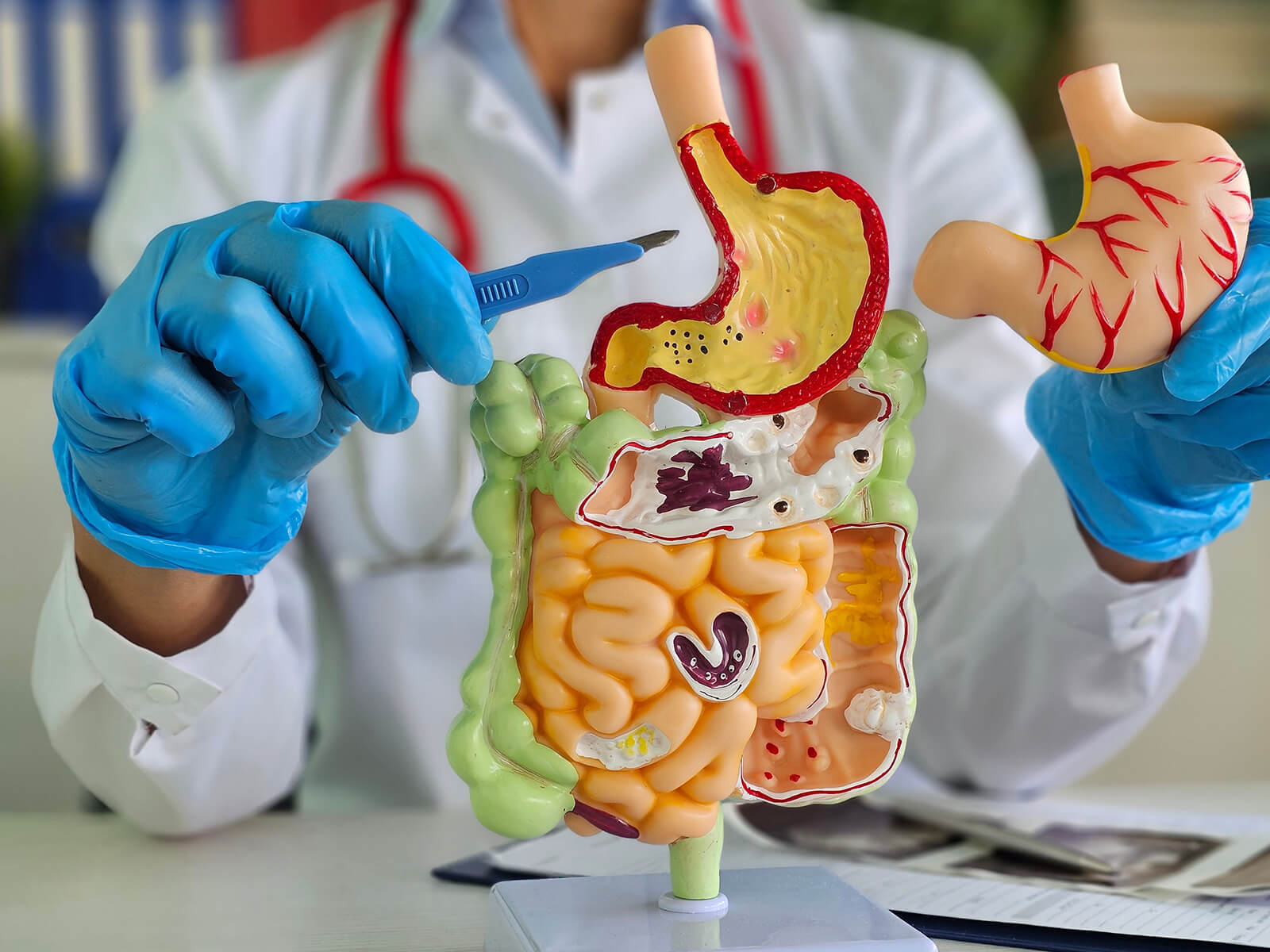
A duodenal ulcer is a sore in the lining of the duodenum-the first part of your small intestine. It develops when the protective mucus barrier is weakened, allowing stomach acid to damage the tissue. Common triggers include bacterial infection and certain medications.
Many people with a duodenal ulcer experience discomfort that may come and go. Typical symptoms include:
Duodenal ulcers arise when acid overwhelms the protective lining of the intestine. Key causes are:
With a focus on patient-centered care and comprehensive digestive health solutions, GastroDoxs provides expert diagnostics and effective treatment for duodenal ulcers and related conditions. Our approach is rooted in compassionate, personalized care to help you achieve long-term relief and improved quality of life. Don't wait to get relief-book an appointment today with our trusted duodenal ulcer specialists near Houston.
We've successfully treated more than 1.3K patients, helping individuals improve their digestive health and overall well-being through expert, personalized care.
With over 20 years of experience, GastroDoxs has been a trusted provider of gastroenterology care, focusing on delivering the best outcomes for patients
Most duodenal ulcers heal in 4 to 8 weeks with appropriate medication and a suitable diet.
The ICD-10 codes for duodenal ulcer range from K26.0 (with bleeding) to K26.9 (unspecified).
Stress does not directly cause duodenal ulcers, but it can exacerbate symptoms and slow healing.
Safe foods include soft fruits, lean meats, cooked vegetables, whole grains, and non-acidic dairy products.
Avoid spicy dishes, caffeine, citrus fruits, alcohol, fried foods, and other irritants that can increase acidity.
Some natural remedies like peppermint tea, aloe vera, and probiotics may help, but always consult your doctor before use.
Yes, some people experience referred pain in their upper back when they have a duodenal ulcer.
See a doctor if you have persistent belly pain, vomiting, black or tarry stools, or unexplained weight loss.
Duodenal ulcers use the K26 code series, whereas gastric ulcers are coded under K25.
Look for board-certified specialists with strong patient reviews and experience treating ulcers-like the team at GastroDoxs.